Filter by
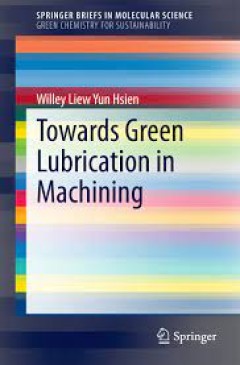
Towards Green Lubrication in Machining
The book gives an overview of environmental friendly gaseous and vapour, refrigerated compressed gas, solid lubricant, mist lubrication, minimum quantity lubrication (MQL) and vegetable oils that can be used as lubricants and additives in industrial machining applications. This book introduces vegetable oils as viable and good alternative resources because of their environmental friendly, non-t…
- Edition
- 1
- ISBN/ISSN
- 978-981-287-265-4
- Collation
- XIII, 46
- Series Title
- SpringerBriefs in Molecular Science
- Call Number
- -

Towards Energy Transparent Factories
This monograph provides a methodological approach for establishing demand-oriented levels of energy transparency of factories. The author presents a systematic indication of energy drivers and cost factors, taking into account the interdependencies between facility and production domains. Particular attention is given to energy flow metering and monitoring. Readers will also be provided with an…
- Edition
- 1
- ISBN/ISSN
- 978-3-319-20868-8
- Collation
- XXXII, 284
- Series Title
- Sustainable Production, Life Cycle Engineering and Management
- Call Number
- -

Ion Channels and Transporters of Epithelia in Health and Disease
This book sheds new light on the physiology, molecular biology and pathophysiology of epithelial ion channels and transporters. It combines the basic cellular models and functions by means of a compelling clinical perspective, addressing aspects from the laboratory bench to the bedside. The individual chapters, written by leading scientists and clinicians, explore specific ion channels and tran…
- Edition
- -
- ISBN/ISSN
- 978-1-4939-3366-2
- Collation
- -
- Series Title
- -
- Call Number
- -
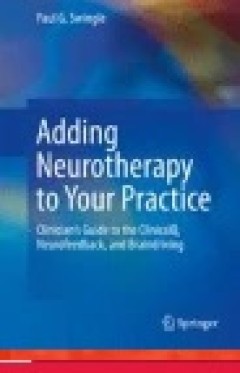
Adding Neurotherapy to Your Practice: Clinician’s Guide to the ClinicalQ, N…
This clinical manual argues for using neurotherapy to enhance mental health and medical practice across settings and specialties. The text takes readers through the tools and methods of neurotherapy: the ClinicalQ for intake assessment, a stimulated EEG modality called braindriving, and neurofeedback protocols to retrain brain function. Case studies demonstrate neurotherapy as an efficient comp…
- Edition
- Ed. 1
- ISBN/ISSN
- 978-3-319-15526-5
- Collation
- IX, 191
- Series Title
- -
- Call Number
- 615.882 SWI a
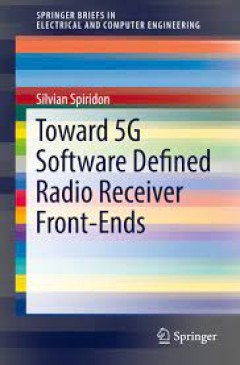
Toward 5G Software Defined Radio Receiver Front-Ends
This book introduces a new intuitive design methodology for the optimal design path for next-generation software defined radio front-ends (SDRXs). The methodology described empowers designers to "attack" the multi-standard environment in a parallel way rather than serially, providing a critical tool for any design methodology targeting 5G circuits and systems. Throughout the book the SDRX desig…
- Edition
- 1
- ISBN/ISSN
- 978-3-319-32758-7
- Collation
- XVII, 96
- Series Title
- SpringerBriefs in Electrical and Computer Engineering
- Call Number
- -

Invasive Tightly Coupled Processor Arrays
This book introduces new massively parallel computer (MPSoC) architectures called invasive tightly coupled processor arrays. It proposes strategies, architecture designs, and programming interfaces for invasive TCPAs that allow invading and subsequently executing loop programs with strict requirements or guarantees of non-functional execution qualities such as performance, power consumption, a…
- Edition
- -
- ISBN/ISSN
- 78-981-10-1058-3
- Collation
- -
- Series Title
- -
- Call Number
- -
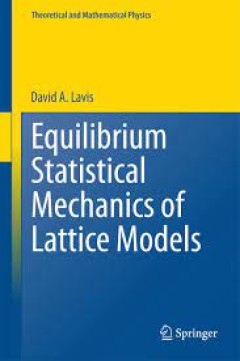
Equilibrium Statistical Mechanics of Lattice Models
Most interesting and difficult problems in equilibrium statistical mechanics concern models which exhibit phase transitions. For graduate students and more experienced researchers this book provides an invaluable reference source of approximate and exact solutions for a comprehensive range of such models. Part I contains background material on classical thermodynamics and statistical mechanics…
- Edition
- -
- ISBN/ISSN
- 978-94-017-9430-5
- Collation
- 101 b/w illustrations
- Series Title
- -
- Call Number
- -

Topological Fixed Point Theory for Singlevalued and Multivalued Mappings and …
This is a monograph covering topological fixed point theory for several classes of single and multivalued maps. The authors begin by presenting basic notions in locally convex topological vector spaces. Special attention is then devoted to weak compactness, in particular to the theorems of Eberlein–Šmulian, Grothendick and Dunford–Pettis. Leray–Schauder alternatives and eigenvalue proble…
- Edition
- 1
- ISBN/ISSN
- 978-3-319-81162-8
- Collation
- X, 194
- Series Title
- -
- Call Number
- -

Acoustic Textiles
This book highlights the manufacturing and applications of acoustic textiles in various industries. It also includes examples from different industries in which acoustic textiles can be used to absorb noise and help reduce the impact of noise at the workplace. Given the importance of noise reduction in the working environment in several industries, the book offers a valuable guide for companies…
- Edition
- Ed. 1
- ISBN/ISSN
- 978-981-10-1476-5
- Collation
- VII, 242
- Series Title
- Textile Science and Clothing Technology
- Call Number
- 620 ACO a
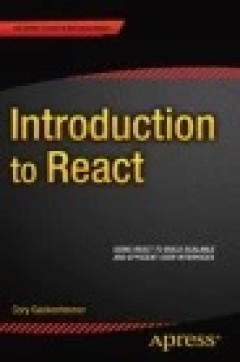
Introduction to React
Introduction to React teaches you React, the JavaScript framework created by developers at Facebook, to solve the problem of building complex user interfaces in a consistent and maintainable way. React.js shrugs away common front-end conventions in an effort to make things more efficient - use Introduction to React to learn about this framework and more today. Get to know the React API and i…
- Edition
- -
- ISBN/ISSN
- 978-1-4842-1245-5
- Collation
- -
- Series Title
- -
- Call Number
- -
 Computer Science, Information & General Works
Computer Science, Information & General Works  Philosophy & Psychology
Philosophy & Psychology  Religion
Religion  Social Sciences
Social Sciences  Language
Language  Pure Science
Pure Science  Applied Sciences
Applied Sciences  Art & Recreation
Art & Recreation  Literature
Literature  History & Geography
History & Geography